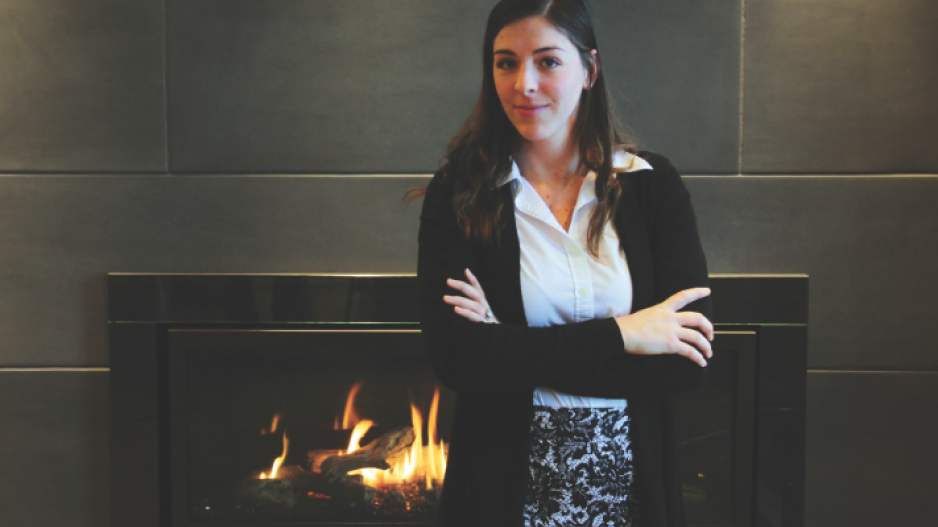Vancouver’s future might look green, but for a number of businesses, including restaurants, fireplace manufacturers and the natural gas sector, it looks bleak, according to a new study on the City of Vancouver’s Renewable City Strategy.
And while B.C. is energy-rich, Vancouver residents could face “energy poverty,” thanks to a plan to phase out natural gas for heating and a knock-on effect of the ban that could increase electricity prices provincewide and decrease natural gas revenue for the provincial government.
Those are the key concerns identified in a KMG Strategy report released September 19. The report was commissioned by Resource Works, a resource industry lobby group, and funded in part by the BC Restaurant & Food Services Association.
Resource Works commissioned the study because of a “paucity” of details and “impartial information” on the economic impacts of the city’s strategy, and confusion among the public and businesses about whether the city is or isn’t planning to ban natural gas, said Resource Works executive director Stewart Muir.
The city’s Renewable City Strategy sets an ambitious goal of becoming 100% renewable by 2050. It plans to accomplish that goal through a number of planning tools, including the Zero Emissions Building Plan (ZEBP) and Green Buildings Policy for Rezonings.
The ZEBP will require new buildings to be emissions-free by 2030. While some of that is accomplished with building standards that increase insulation and reduce energy inputs, it would also require the phasing out of natural gas for heating – initially in new buildings and eventually in all buildings.
The development community has generally accepted the new policy. As the KMG report states, developers expect they will simply pass on any added costs to consumers.
The biggest concern identified in the KMG study is the city’s plan to phase out fossil fuel for heating.
Natural gas is used in 108,000 Vancouver homes, businesses and public buildings, accounting for about 10% of B.C.’s natural gas consumption, KMG says.
The restaurant industry is particularly concerned, because most restaurants use natural gas for cooking. City officials have denied the strategy bans natural gas. Developers, homeowners and restaurants would still be able to burn natural gas for heating and cooking, so long as it’s “renewable.”
Renewable natural gas (RNG) is made from a variety of sources. Biomethane can be extracted from landfills, sewage treatment plants and dairy farms. Wood waste can be turned into syngas.
But currently less than 1% of the gas burned in B.C. comes from biomethane. Getting Vancouver to 100% would require more landfills than B.C. has, so most of the new supplies would likely have to come from expensive syngas technology.
Burning RNG produces the same amount of carbon dioxide as burning regular natural gas, but it is considered renewable because it uses a product – methane – for energy that would otherwise be released into the atmosphere anyway through decomposition.
While switching from non--renewable natural gas to a renewable form makes sense on paper, the KMG report warns that it would be expensive and unnecessary.
But Matt Horne, a former Pembina Institute director and now climate policy manager for the City of Vancouver, points to a provincial government study done in May that examined the potential for acquiring new renewable gas supplies.
“If we’re looking over a 30-year time frame, there’s a lot out there,” he said. “There’s lots of opportunity out there and it’s a matter of building it up over time.”
It’s not clear, however, who the city expects to cover the capital investment of building new syngas plants and biogas extraction facilities so that Vancouver can attain its greenest-city goals.
Natural gas is already considered one of the “cleanest” fossil fuels, because it has a much lower carbon content than that of coal or petroleum products. It is abundant in B.C. and its production is an important economic generator.
Muir said a major flaw in the city’s strategy is that it fails to consider economic impacts to Vancouver businesses and homeowners, who already struggle with housing affordability.
“The plan is not realistically costed out, nor does it connect the policy objectives to the city administration’s commitments to improving affordability for current residents and businesses, or future residents and businesses,” the KMG report states.
“The RCS [Renewable City Strategy] together with the ZEBP and the Green Buildings Policy articulate a policy approach that is uncompromising, unrealistic and unaffordable.”
One sector that would be hard hit is natural gas fireplace manufacturers. B.C.’s fireplace manufacturing hub produces 25% of all natural gas fireplaces sold in North America.
Horne said the criticism that the RCS does not really consider economic impacts is “fair comment.” The RCS’s main aim is addressing climate change.
But Horne adds that the measures already taken by the city have had positive economic impacts.
“The numbers we have show the city has saved roughly $50 million across the city since 2007 in energy costs,” he said. “We also have a big growth – almost 50% – in green jobs.”
He added the city is wrapping up modelling that takes a more “holistic” approach to economic impacts.
Horne also offered assurances to restaurants that they will not be left without some form of natural gas for cooking. They will still be able to use RNG.
“We said that’s contingent on getting supplies to where they need to be,” Horne said. “If for some reason we can’t bring on as much renewable natural gas over time, we’ll have to adjust course.”




